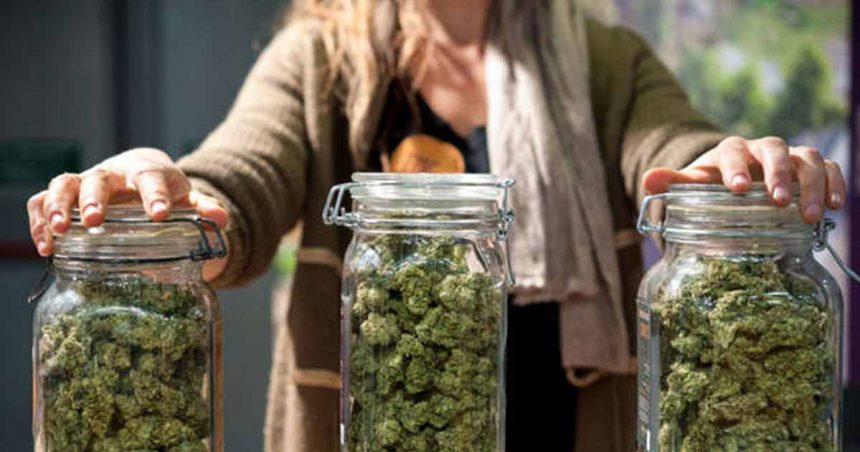25 Surprising Facts About Cannabis That Might Challenge Your Perceptions
With the legalization of cannabis literally growing across the globe, the conversation around this once-illegal subject has taken center stage. Beyond the headlines and stereotypes, there are a number of interesting facts about cannabis that often go unnoticed or simply unknown. From its ancient origins to its modern-day applications, here are 25 surprising facts about cannabis that might challenge your perceptions.
Low Dependency Rate
Despite its common misconceptions, only 9% of all cannabis users develop a dependency on it, making it one of the least addictive substances around.
Widespread Use
About 42% of all Americans have tried cannabis, highlighting its prevalence in the country despite legal restrictions. This widespread experimentation suggests a cultural shift towards acceptance and normalization, challenging traditional stigmas associated with its use.
Relatively Safer Than Alcohol
Multiple studies have shown that cannabis is actually safer than consuming alcohol, contradicting traditional beliefs. By studying overdose risk and long-term health effects, researchers have been able to challenge the idea, reshaping public perceptions of substance safety.
Forgotten Legalization States
While Colorado and Washington have dominated cannabis discussions, Alaska and Oregon also legalized recreational use recently. Currently, 33 states have already legalized it.
Cancer-Fighting Properties
Research suggests that compounds made from cannabis can have the potential to prevent metastasis in certain aggressive cancers. This discovery has opened up new avenues for exploring more medicinal properties.
Persistent Arrests
Even with widespread legalization efforts, the U.S. continues to make numerous arrests for cannabis-related offenses. And yes, these arrests continue to disproportionately affect minority communities.
Potency Differences
Studies have found that legal cannabis tends to be less potent than varieties acquired outside of dispensaries. The difference seems to be attributed to the stricter regulations and quality control done by government agencies.
Temporary Cognitive Effects
While there have been concerns about the cognitive effects of cannabis use, particularly in teenagers, studies suggest that these tend to be temporary changes from use. Be sure to contact your medical professional if usage grows.
Historical Legalization
Cannabis was originally legal in the U.S. until the early 1900s when it began to face prohibition efforts with alcohol. For some reason, people seemed to fight harder for alcohol to come back while not enough decided to go green the same way under the law.
Global Legalization Pioneer
Uruguay was the first country to legalize the cultivation, sale, and consumption of cannabis in 2013.
Economic Impact
The legalization of cannabis has not only generated a major source of tax revenue for states but it’s also created thousands of jobs across various sectors, from cultivation to retail.
Dispensary Boom
In Colorado, legal cannabis has led to an absurd proliferation of dispensaries, which at one point outnumbered Starbucks stores.
Cultural Traditions
In India, cannabis-infused drinks like bhang lassi are part of religious and cultural celebrations.
Pioneering Online Transaction
Cannabis was actually one of the earliest online transactions ever completed – taking place between two students at Stanford and MIT in the 1970s.
Bob Marley
Bob Marley was laid to rest with a stalk of cannabis, symbolizing its significance to him and the countercultural movement he helped create.
Can’t Really Overdose
While technically possible, overdosing on cannabis is highly unlikely and practically impossible.
Environmental Benefits
Cannabis cultivation has been used to help decontaminate polluted soil, highlighting its versatility as a sustainable agricultural crop.
Widespread Legalization
As of 2020, 34 U.S. states have legalized cannabis in some form, indicating a shifting attitude towards its use.
Mainstream Acceptance
Once considered a fringe drug, cannabis is now increasingly mainstream with its prominent legalization.
Medicinal Potential
Cannabis has been proven to have various medical applications, including pain relief and nausea suppression.
Youthful Vulnerability
Adolescents are particularly susceptible to the adverse effects of cannabis due to ongoing brain development.
Psychological Risks
Long-term cannabis use has been linked to an increased risk of psychosis or schizophrenia in certain individuals.
Pregnancy Complications
Using cannabis during pregnancy can lead to serious complications and should be avoided.
Impact on Brain Function
Cannabis use can affect memory, cognition, and decision-making abilities, but these effects wear off after usage.
Social Equity and Justice
Advocates argue that reforms legalizing cannabis should address past injustices made because of the drug.
Closing Thoughts
The evolving landscape of cannabis legalization lets us take a closer look at the complexities of this plant. Hopefully, these 25 points should help challenge our preconceived notions and help us make more informed decisions regarding this exciting plant.






